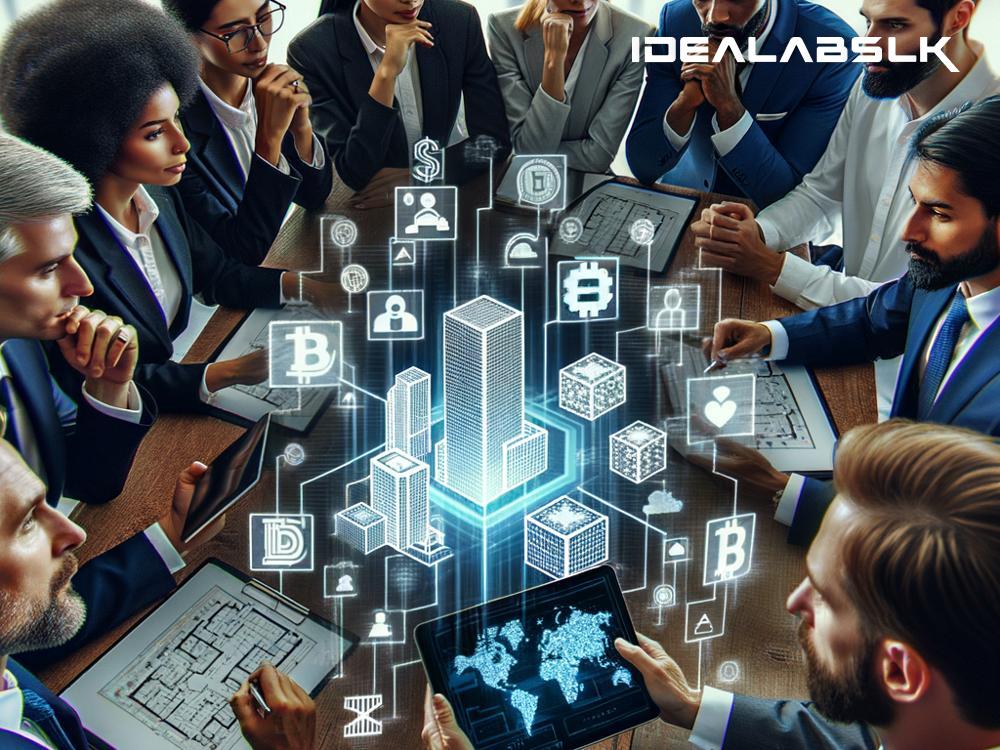Simplifying Real Estate Development with Blockchain Technology
In today's fast-paced world, the real estate sector stands as a foundational pillar, constantly evolving and seeking innovative ways to overcome its traditional challenges. Among these innovations, blockchain technology emerges as a transformative force, particularly in the realm of real estate development project management. To the uninitiated, the integration of blockchain may seem complex, but its essence lies in simplifying and streamlining the myriad processes involved in real estate development.
The Backbone of Blockchain
At its core, blockchain is a type of database technology that records information in a way that makes it difficult or impossible to change, hack, or cheat the system. It’s like a digital ledger of transactions distributed across an entire network of computer systems. Each block in the chain contains a number of transactions, and every time a new transaction occurs, a record of that transaction is added to every participant's ledger. This transparency and immutability make blockchain an attractive tool for various sectors, including real estate.
Revolutionizing Real Estate Development
When it comes to real estate development project management, blockchain technology can significantly enhance efficiency, transparency, and trust in the following ways:
-
Land Registries and Titles: One of the most promising applications of blockchain is in the management of land registries and property titles. By digitizing land records and storing them on a blockchain, the authenticity of land titles can be verified instantly, greatly reducing fraud, eliminating paperwork, and speeding up transactions.
-
Streamlining Transactions: The traditional process of buying and selling property is often cumbersome, involving multiple parties and layers of bureaucracy. Blockchain can simplify this by offering a secure platform for all transactions related to real estate development projects, making the process quicker, less expensive, and more transparent.
-
Smart Contracts: These are self-executing contracts with the terms of the agreement directly written into code. In real estate development, smart contracts can automate various processes, such as releasing funds upon completion of certain milestones, without the need for intermediaries. This not only speeds up the project timeline but also reduces the risk of disputes and errors.
-
Supply Chain Management: Real estate development involves a complex supply chain, from sourcing materials to managing contractors. Blockchain can provide a transparent and tamper-proof system for tracking the provenance, quality, and delivery of materials, as well as the performance and reliability of contractors and subcontractors.
-
Investment and Financing: Blockchain opens up new avenues for project financing and investment. Through tokenization, real estate assets can be divided into tokens that represent a share of the property. These tokens can be easily bought and sold on blockchain platforms, making real estate investments more accessible to a broader range of investors and potentially increasing liquidity in the real estate market.
Overcoming Challenges
While the benefits of integrating blockchain into real estate development project management are numerous, there are challenges to overcome. The technology is still in its infancy and requires a significant cultural shift and regulatory adaptations. Moreover, the initial setup and investment in blockchain technology can be substantial. However, as the technology matures and becomes more widespread, these challenges are likely to diminish.
The Future is Now
As we stand on the cusp of a new era in real estate development project management, the potential of blockchain technology is undeniable. Its promise of greater efficiency, transparency, and security aligns with the increasing demand for streamlined processes and trusted transactions in the real estate sector. While the journey to widespread adoption may not be without its hurdles, the foundational steps are being laid today for a future where blockchain technology is integral to real estate development.
In simple terms, think of blockchain as a tool that can make buying, selling, and managing property easier and safer for everyone involved. From securing land titles to making investments more accessible, blockchain has the potential to transform real estate development as we know it. As industry stakeholders continue to explore and embrace this technology, the dream of a simplified, transparent, and efficient real estate sector is gradually becoming a reality.

